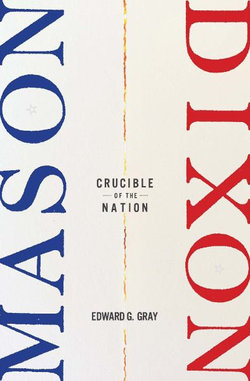The first comprehensive history of the Mason-Dixon Line, the borderland that encapsulated the American story of rivalry and settler-colonial violence, slavery and audacious growth.
The United States is the product of border dynamics-not international frontiers, but the boundary that runs through its first heartland. The story of the Mason-Dixon Line is the story of America's colonial beginnings, nation building, and conflict over slavery.
Master historian Edward Gray offers the first comprehensive narrative of the Mason-Dixon Line. Formalized in 1767, the line resolved a generations-old dispute that began with the establishment of Pennsylvania in 1681. Rivalry with the Calverts of Maryland-complicated by struggles with Dutch settlers in Delaware, breakneck agricultural development, and the resistance of Lenape and Susquehannock natives-led to contentious jurisdictional ambiguity, full-scale battles among the colonists, and ethnic slaughter.
Then, in 1780, Pennsylvania's Act for the Gradual Abolition of Slavery inaugurated the next phase in the line's history. Proslavery and antislavery sentiments had long coexisted in the Maryland-Pennsylvania borderlands, but now African Americans-enslaved and free-faced a boundary between distinct legal regimes. With the passage of the Fugitive Slave Act in 1850, the Mason-Dixon Line became a federal instrument to arrest the northward flow of freedom-seeking Blacks. Only with the end of the Civil War did the line's significance fade, though it continued to haunt African Americans as Jim Crow took hold.
Mason-Dixon features a dramatic parade of colonial grandees, Native American diplomats, Quaker abolitionists, fugitives from slavery, capitalist railroad and canal builders, US presidents, Supreme Court justices, and Underground Railroad conductors-all contending with the relentless violence and political discord of a borderland that has proven a generative force in American history.




Share This Book: